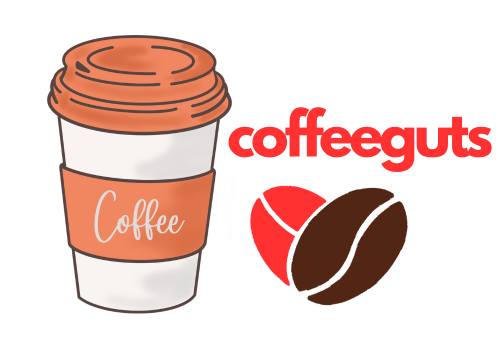The intriguing relationship between coffee consumption and heart rate is a subject of ongoing debate and research in the realm of cardiology. Whether you’re a coffee aficionado or health enthusiast does drinking coffee lower heart rate ? This article promises to offer insightful data-backed revelations about your favorite brew and its cardiovascular implications.
What Does Science Say About Coffee and Heart Rate?
While many assume that coffee might reduce heart rate due to its relaxing effects for some, the reality is not as straightforward. Studies indicate that caffeine, the active component in coffee, can actually lead to a temporary increase in heart rate.
The extent of this increase can vary widely, depending on the individual’s sensitivity to caffeine and the amount of caffeine consumed. It’s worth noting that caffeine’s effect on heart rate has been observed to range from negligible to significant, suggesting that the relationship between coffee drinking and heart rate is complex.
How Can Coffee Affect Heart Health?
The implications of coffee on cardiovascular health have been a topic of discussion for decades. Moderate coffee consumption is generally considered safe for most people and may even confer some protective effects on the heart.
High doses of caffeine could lead to adverse cardiac events, especially in individuals with underlying heart conditions. The paradoxical effects of coffee may stem from its ability to act both as a stimulant, due to caffeine, and as a source of antioxidants.
Is There a Direct Effect of Coffee on Heart Rate?
Contrary to the popular belief that drinking coffee can lower heart rate, caffeine typically has a stimulating effect on the cardiovascular system. An increase in heart rate and blood pressure is a well-documented response following caffeine ingestion.
This pressor effect of caffeine can be more pronounced in nonhabitual drinkers as opposed to habitual coffee consumers, who might develop a tolerance to these effects over time.
Coffee and Palpitations: What’s the Connection?
Palpitations, or the sensation of having a racing heart, can sometimes be experienced as an effect of coffee drinking, specifically due to its caffeine content.
Caffeine acts on the heart by blocking the action of adenosine, a neurotransmitter that normally promotes relaxation of the heart muscle. This blockade can lead to an increase in the firing of pacemaker cells within the heart, potentially causing palpitations.
Understanding the Cardiovascular Effects of Coffee
The cardiovascular effects of coffee are not limited to just an increase in heart rate. Caffeine administration can also cause a moderate dose-dependent increase in blood pressure, which could have implications for individuals with hypertension.
The effect on bp is generally short-lived, and habitual coffee drinkers may not experience the same cardiovascular effects as those who consume coffee sporadically.
Does Coffee Intake Influence Heart Rhythm?
Regular coffee consumption may lead to noticeable effects on heart rhythm, including both the rate and regularity of beats. While for most people, this does not pose a health risk, for those with certain heart conditions, such as abnormal heart rhythms or palpitations, coffee intake should be monitored. Additionally, a significant increase in heart rate could be problematic for those with certain types of cardiac disease.
The Role of Caffeine in Blood Pressure and Heart Rate
Caffeine increases heart rate and can also cause a temporary increase in blood pressure. The effects of caffeine on plasma adenosine levels and the sympathetic nervous system contribute to these changes. For those who are sensitive to caffeine, even a moderate dose can have significant effects on heart rate and blood pressure.
Habitual vs. Nonhabitual Coffee Drinkers: Is There a Difference in Effect?
Habitual coffee drinkers often develop a tolerance to the cardiovascular effects of coffee. This means the same dose of caffeine may have a diminished effect on increasing heart rate and blood pressure compared to those who drink coffee less frequently. Consequently, the association between coffee and heart rate might differ greatly between habitual and nonhabitual drinkers.
What Do Cardiologists Say About Coffee Consumption?
Most cardiologists agree that moderate coffee consumption is generally safe for healthy individuals and might even have a beneficial effect on cardiovascular health. They also warn that individuals with heart conditions or who experience heart palpitations should limit or monitor their coffee intake.
Anyone concerned about their heart health should consult with a healthcare provider before making any significant changes to their coffee drinking habits.
The Verdict: Balancing Coffee Intake for Optimal Heart Health
Coffee, when consumed in moderation, does not pose a significant risk to heart health for most individuals. In fact, it may offer some benefits. It’s crucial to recognize that high doses of caffeine can affect heart rate and blood pressure.
Listening to your body and consulting with a healthcare provider if you have any concerns about your heart health and coffee consumption is advisable.
In Summary:
- Coffee contains caffeine which can lead to a temporary increase in heart rate.
- The effect of caffeine on heart rate can vary depending on individual sensitivity and the amount consumed.
- Moderate coffee consumption is generally safe for most people, but high doses can have adverse effects on the heart.
- Habitual coffee drinkers may develop a tolerance to the effects of caffeine.
- Individuals with heart conditions should consult a healthcare provider to understand the safe amount of coffee for their situation.
- Monitoring coffee intake is advisable for maintaining optimal heart health.
Q: How do you calm your heart rate with caffeine?
A: To calm a caffeine-induced elevated heart rate, stop consuming caffeine, practice deep breathing exercises, stay hydrated, and wait for the effects to subside. If the high heart rate persists, consult a healthcare provider.
Q: How long does it take for heart rate to go down?
A: It typically takes a few hours for your heart rate to return to normal after consuming caffeine, but it could take longer depending on individual metabolism and the amount of caffeine consumed.
Q: How can I settle my heart rate fast?
A: To settle your heart rate quickly, try deep breathing, the Valsalva maneuver, or splashing cold water on your face. If your heart rate does not stabilize, seek medical advice


Leave a Reply